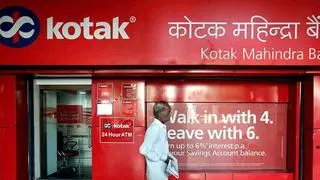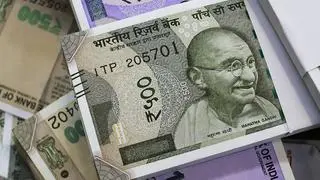Uncertainty over the government’s ability to stick to its fiscal deficit target for FY16 may see the Reserve Bank of India maintaining status quo on the repo rate in the upcoming monetary policy review.
Though retail inflation seems to be moving along the trajectory projected by the RBI (5.8 per cent for January), possibly allowing it wiggle room to cut rates, the central bank’s policy- making gets complicated due to a host of external factors.
The external factors include slowdown in the Chinese economy, devaluation of the yuan, softening global commodity prices, US Fed keeping its rate unchanged and Bank of Japan cutting interest rates below zero.
The central bank’s sixth bi-monthly monetary policy review on February 2 also comes just days before the Budget. So, the RBI may look for clarity on the government’s resolve to not deviate from the fiscal deficit target, which is pegged at 3.9 per cent of GDP for FY16.
The uncertainty on the fiscal deficit target has arisen as the government has mopped up just about ₹13,300 crore so far by partly selling stakes in five public sector undertakings in the current financial year, out of the Budget estimate of ₹69,500 crore. In 2015, the RBI had cut the policy repo rate (the interest rate at which it provides liquidity to banks to help them overcome short-term mismatches) cumulatively by 125 basis points from 8 per cent to 6.75 per cent. One basis point is equal to one-hundredth of a percentage point.
Referring to Brazil’s experience, RBI Governor Raghuram Rajan had recently said it suggests the enormous costs of becoming an unstable country far outweigh any small growth benefits that can be obtained through aggressive policies (substantial fiscal stimulus and reduction in interest rates).
“We should be very careful about jeopardising our single most important strength during this period of global turmoil, macroeconomic stability,” he said.
Fiscal consolidation Naresh Takkar, MD and Group CEO, ICRA Ltd, observed that the impending pay revision for Central Government employees and pensioners has created some uncertainty on whether the Government would choose to stick to the previously announced fiscal consolidation target. “Therefore, ICRA expects the RBI to refrain from monetary easing until the presentation of the Union Budget for 2016-17,” he said.
Devendra Pant, Chief Economist, India Ratings (Ind-Ra), expects the CPI (consumer price index) inflation to decline to around 5.8 per cent in January.
“Although by calling the 50 basis points repo rate cut, in its fourth bi-monthly review in September 2015, a frontloaded policy action, the RBI has nearly shut the door on further rate cuts in FY16, RBI's policy stance is likely to be accommodative in the near term,” he explained. If conditions permit, Ind-Ra expects a 25-50 basis points cut in the repo rate during FY17.








Comments
Comments have to be in English, and in full sentences. They cannot be abusive or personal. Please abide by our community guidelines for posting your comments.
We have migrated to a new commenting platform. If you are already a registered user of TheHindu Businessline and logged in, you may continue to engage with our articles. If you do not have an account please register and login to post comments. Users can access their older comments by logging into their accounts on Vuukle.